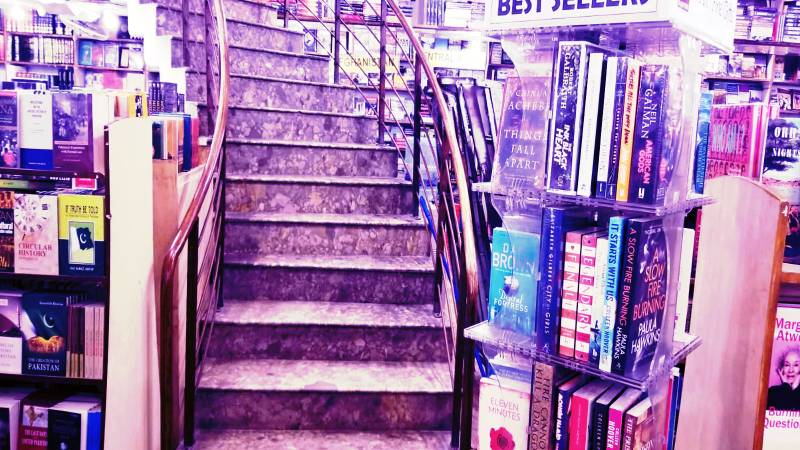
Saeed Book Bank, known as Islamabad's biggest bookstore, has stirred controversy by self-censoring books, a move that deviates from standard bookstore norms. The store recently removed Salman Masood's "Fall Out," which was launched on November 20th and is widely available in major bookstores nationwide.
The book was unexpectedly pulled from the shelves earlier this week. The store's management cited aggressive demands from some customers as the reason for this action. It was intriguing that no other bookstore in the city or elsewhere in the country reported facing any pressure to remove the book from their shelves.
This decision to self-censor immediately led to a backlash on social media. Nida Kirmani, a prominent academic, voiced her concern on Twitter, stating, "First Liberty Books censors @saraswatibysea's essay, and now Saeed Book Bank is removing books from shelves. These may sound like minor incidents, but these quiet forms of censorship are dangerous and damaging to any fledgling culture of creativity or critique that we may have.”
Khurram Dastagir Khan, a former Federal Minister of the PML-N, also took to Twitter, saying, "Fascist goons have attacked one of Islamabad's major bookshops and forced the staff and owner to remove the book by @salmanmasood and stop its sale.”
A large number of prominent journalists expressed solidarity with the author, who is the Editor of The Nation and also reports for The New York Times, and criticized the bookstore’s conduct on social media.
Many people expressed surprise at the alleged aggressive behavior of some customers, emphasizing that if someone dislikes a book, they can either write a review or choose not to purchase it. However, the act of forcibly pressuring a bookstore to cease sales is quite astonishing. Typically, books that are perceived as anti-religious or blasphemous provoke such reactions. Yet, "Fall Out" is a work of political analysis, making the response to it all the more unexpected.
Confusion surrounds the incident, as the bookstore's manager, Akhtar, claimed unawareness of any direct order to remove the book. "Maybe someone talked to Ahmed Saeed, the owner, but I don't recall anyone coming to the bookstore,” he said. However, he confirmed that the book was removed and then restocked following the owner's instructions.
When contacted, Ahmad Saeed, the bookstore owner, stated on Thursday that the book was back on the shelf, claiming that its removal was due to customer feedback.
“Some customers told me to remove the book. And I removed it,” he said. Saeed evaded questions about his decision-making process and the presence of other negatively reviewed books in his store. He was also reluctant to elaborate on the identities of individuals who aggressively visited his store and forced him to remove the book and stop its sale.
By Thursday evening, "Fall Out" was back on the shelves of Saeed Book Bank. According to a distributor, Saeed Book Bank initially ordered 10 copies of "Fall Out," then ordered an additional 15. By Thursday, with only four copies left, it indicated that the sales had been relatively good.
Yet, the initial decision to remove the book and the refusal to restock left unanswered questions about the state of censorship and freedom of expression in the Pakistani book market.
The Freedom Network, a leading Pakistani media watchdog, strongly condemned the incident, terming the removal of Salman Masood’s book from the bookstore's shelves as “censorship” and calling for an investigation to identify those responsible for this infringement on free speech.

